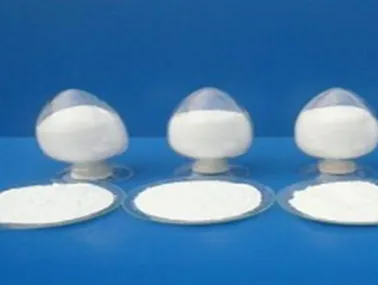
emulsifier 471
Understanding Emulsifier E471 A Comprehensive Overview
Emulsifiers play a crucial role in the food industry, enhancing the texture, consistency, and shelf life of various products. One of the most commonly used emulsifiers is E471, which is derived from a variety of sources, including vegetable oils, animal fats, and mono- and diglycerides of fatty acids. This article will delve into the nature, applications, safety, and regulatory aspects of E471, shedding light on its importance in culinary and food production practices.
What is E471?
E471, also known as mono- and diglycerides of fatty acids, is a food additive utilized primarily as an emulsifier. Its primary function is to stabilize emulsions—mixtures of water and oil that typically do not blend, such as salad dressings, mayonnaise, and various baked goods. E471 works by reducing the surface tension between the substances, allowing for a smoother and more stable mixture.
E471 can be derived from both animal and plant sources, although the specific origin may vary depending on the manufacturer. For those adhering to strict dietary restrictions, particularly vegetarians or vegans, it is crucial to verify the source of E471 in food products.
Applications of E471
The versatility of E471 makes it a popular choice in countless products found in grocery stores and restaurants. It is commonly used in
1. Baked Goods E471 improves the texture and shelf life of bread, cakes, and pastries by preventing the separation of ingredients and enhancing moisture retention.
2. Dairy Products In ice creams, creams, and cheese spreads, E471 contributes to a smoother mouthfeel and helps maintain the product's consistency.
emulsifier 471

3. Sauces and Dressings Emulsifiers like E471 are essential for achieving a uniform texture in sauces, dressings, and mayonnaise, ensuring a stable mixture that doesn’t separate.
4. Confectionery In chocolates and candies, E471 aids in the smoothness and prevents the frosting of sugar by keeping the fat and sugar particles evenly distributed.
5. Processed Foods Many processed and convenience foods incorporate E471 to enhance their texture and appearance, making them more appealing to consumers.
Safety and Regulation
The safety of food additives is a paramount concern for health authorities worldwide. E471 has been evaluated by various health organizations, including the European Food Safety Authority (EFSA) and the Food and Drug Administration (FDA) in the United States. These agencies have deemed E471 safe for consumption when used within the recommended guidelines.
However, as with any food additive, moderation is key. While E471 is generally recognized as safe, excessive consumption of processed foods containing multiple additives, including E471, may lead to health concerns. It is essential for consumers to be aware of their overall diet and to prioritize whole foods whenever possible.
Conclusion
In conclusion, E471 is a versatile and essential emulsifier in the food industry, contributing to the texture, stability, and shelf life of diverse products. With its widespread use across various food categories, it plays a vital role in ensuring that our favorite recipes have the quality and consistency we expect. As consumers, being informed about food additives like E471 allows us to make better nutritional choices. Whether one is avoiding certain ingredients for health, ethical, or dietary reasons, understanding what goes into our food empowers us to make informed decisions in our culinary endeavors. Ultimately, with the right knowledge, we can enjoy our food while keeping an eye on our health and well-being.
-
Aluminum Hydroxide: Quality Gels & Dried Gel AntacidNewsAug.31,2025
-
Buy High-Quality Trichloroisocyanuric Acid for Sale | TCCA 90% SupplierNewsAug.30,2025
-
Pure Sodium Dichloroisocyanurate Dihydrate | Powerful DisinfectantNewsAug.29,2025
-
Industrial Chemicals: Quality & Purity for Every IndustryNewsAug.28,2025
-
Nitrile Rubber Honoring Strict Production StandardsNewsAug.22,2025
-
Aspartame Ingredients Honoring Food Safety ValuesNewsAug.22,2025
-
Fertilizer for Balanced Plant NutritionNewsAug.22,2025
Hebei Tenger Chemical Technology Co., Ltd. focuses on the chemical industry and is committed to the export service of chemical raw materials.
-

view more DiethanolisopropanolamineIn the ever-growing field of chemical solutions, diethanolisopropanolamine (DEIPA) stands out as a versatile and important compound. Due to its unique chemical structure and properties, DEIPA is of interest to various industries including construction, personal care, and agriculture. -

view more TriisopropanolamineTriisopropanolamine (TIPA) alkanol amine substance, is a kind of alcohol amine compound with amino and alcohol hydroxyl, and because of its molecules contains both amino and hydroxyl. -

view more Tetramethyl Thiuram DisulfideTetramethyl thiuram disulfide, also known as TMTD, is a white to light-yellow powder with a distinct sulfur-like odor. It is soluble in organic solvents such as benzene, acetone, and ethyl acetate, making it highly versatile for use in different formulations. TMTD is known for its excellent vulcanization acceleration properties, which makes it a key ingredient in the production of rubber products. Additionally, it acts as an effective fungicide and bactericide, making it valuable in agricultural applications. Its high purity and stability ensure consistent performance, making it a preferred choice for manufacturers across various industries.





